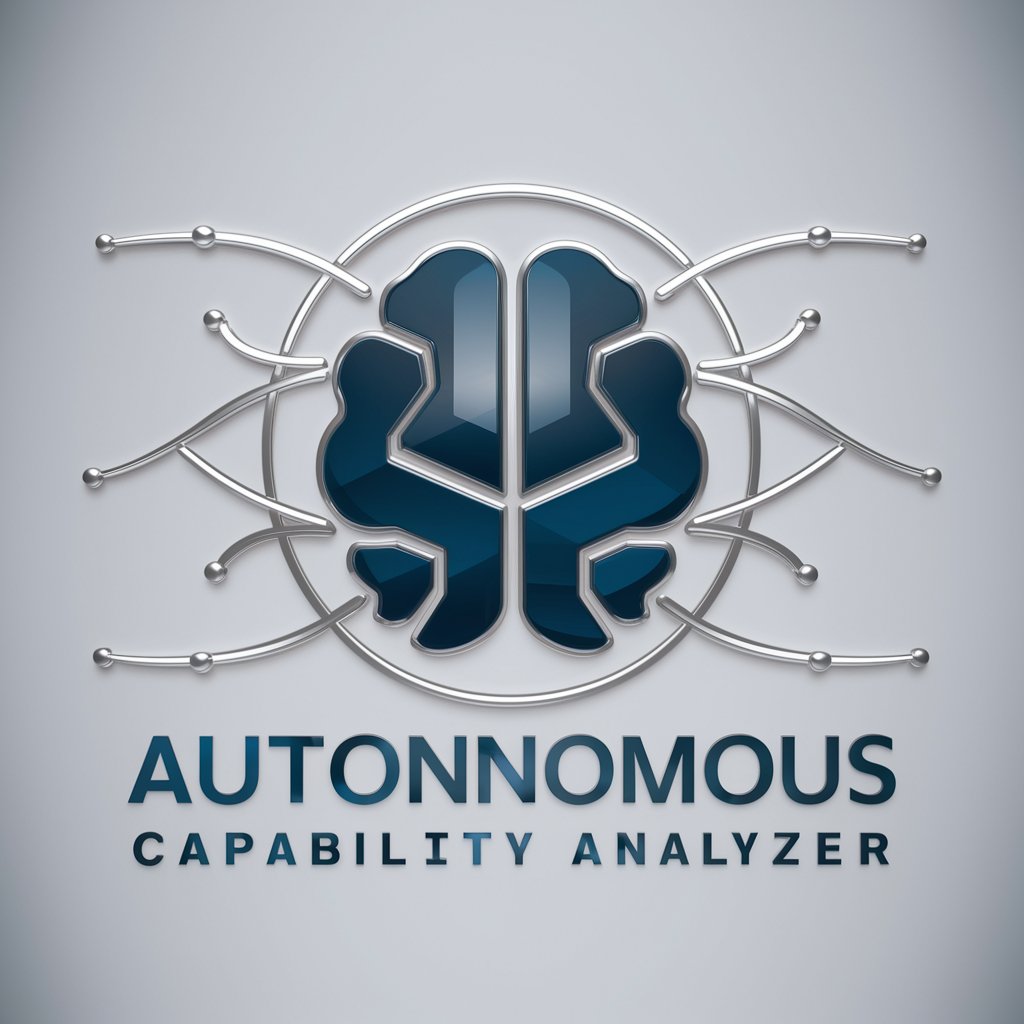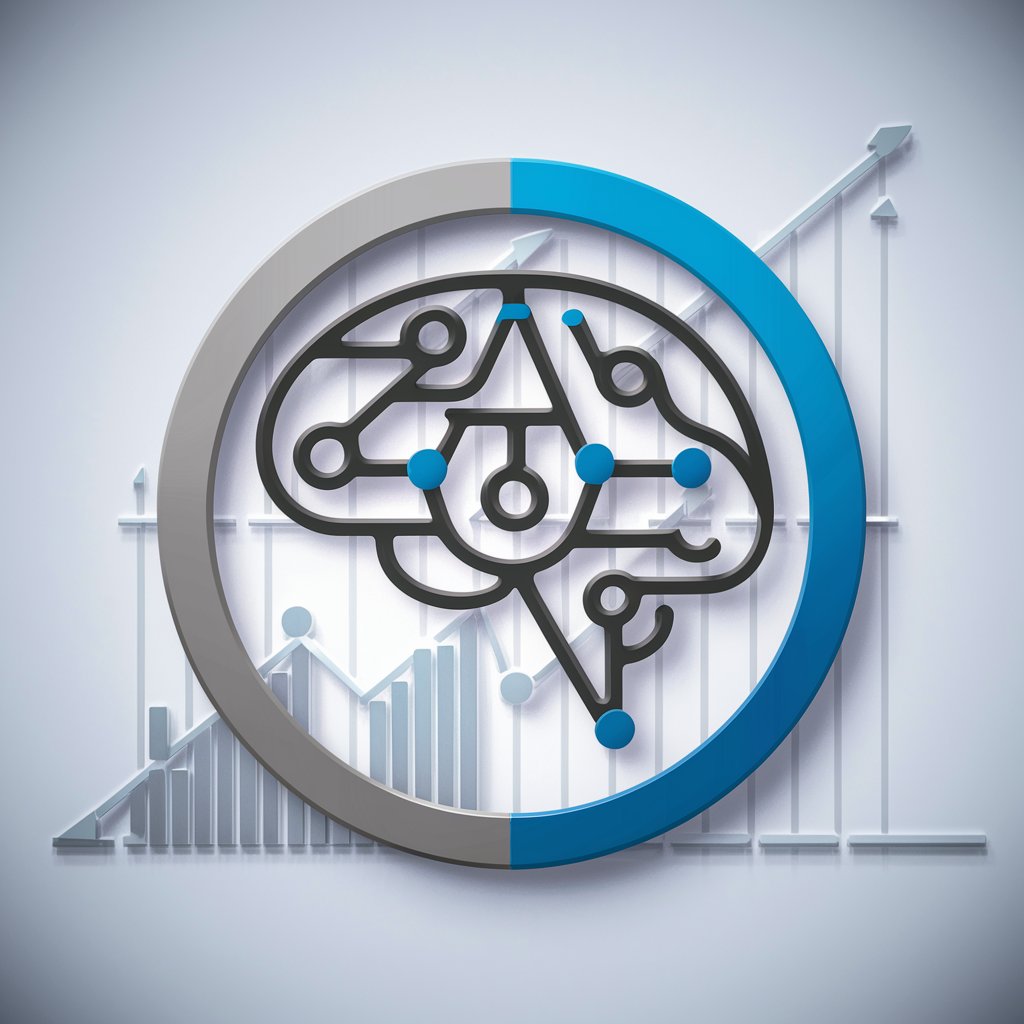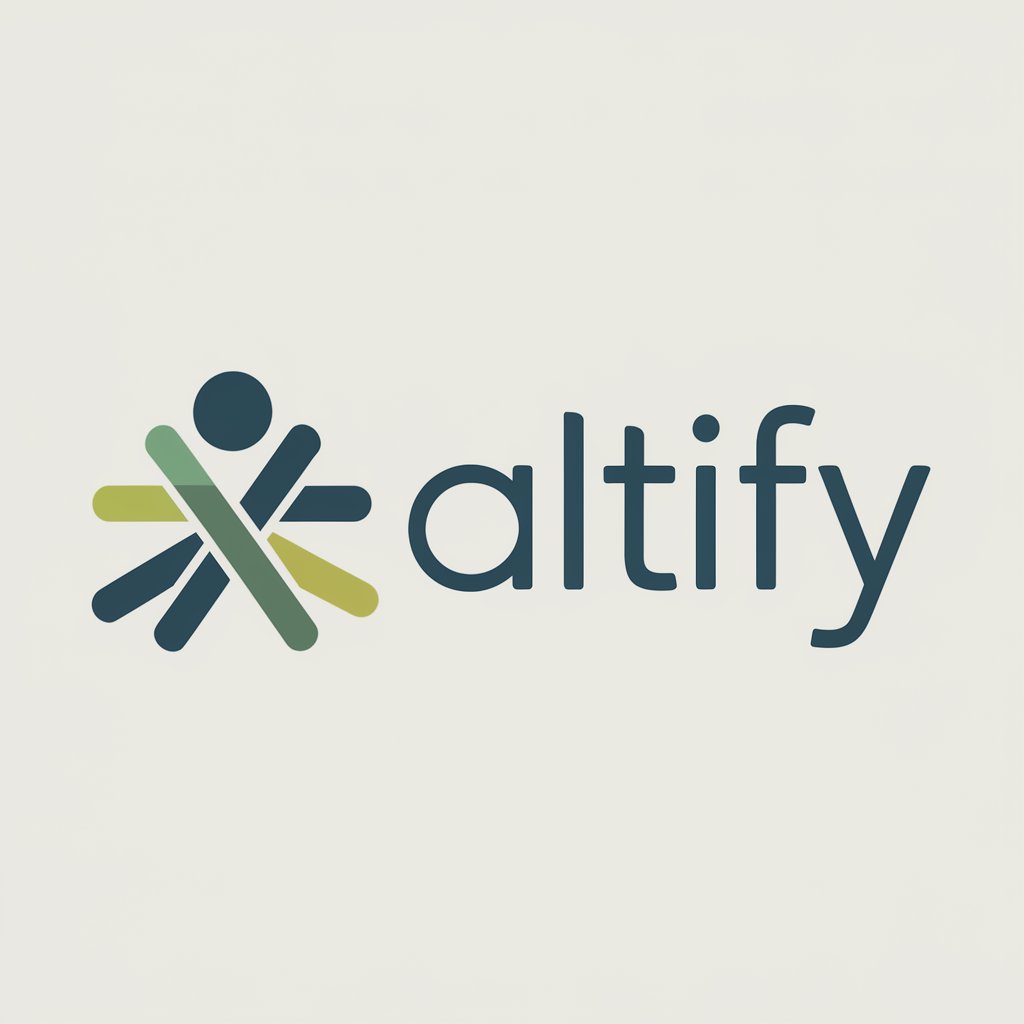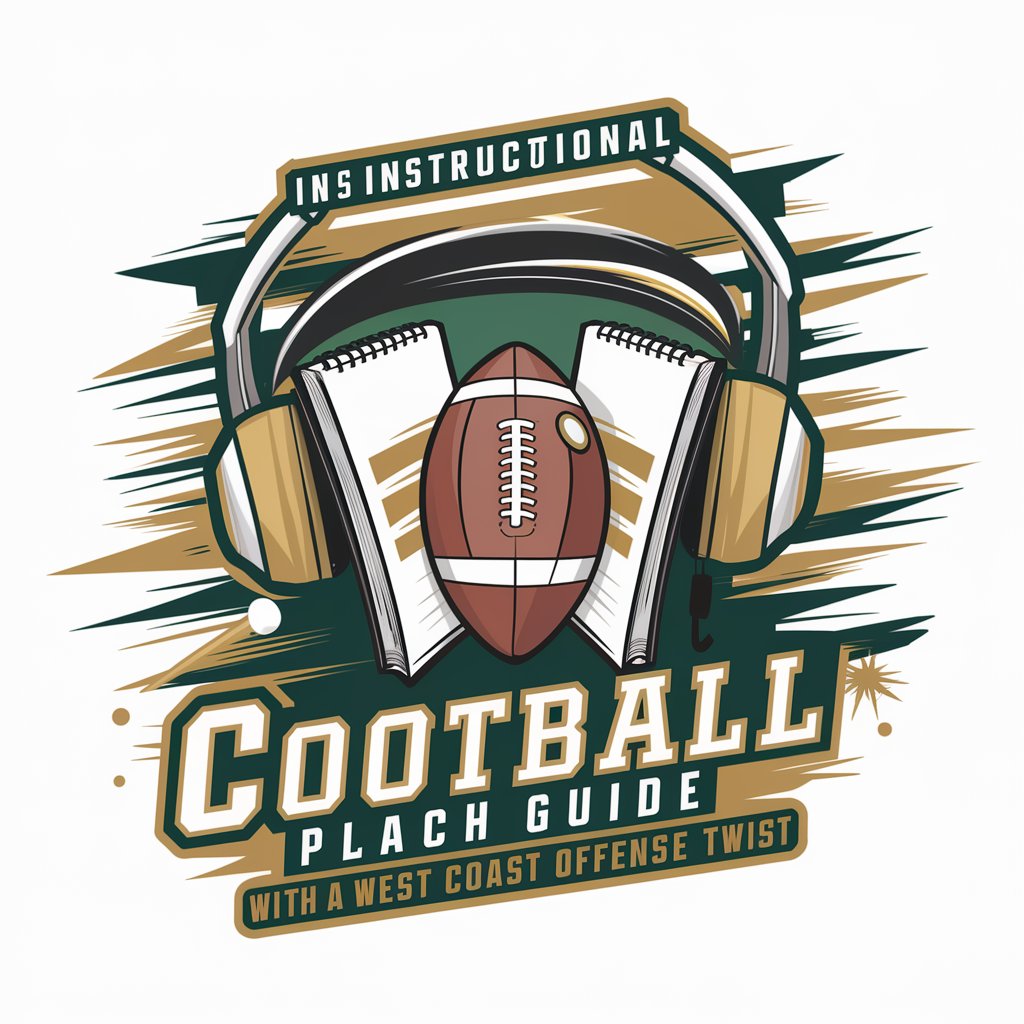Autonomous Capability Analyzer - Cognitive Autonomy Assessment

Welcome! Let's dive into the world of autonomous AI capabilities.
Evaluating AI with AI-Powered Precision
Analyze the autonomous capabilities of this AI system by examining its ability to...
Assess the cognitive maturity of the agent, focusing on its ability to...
Evaluate the adaptability of the AI in real-time and asynchronous scenarios, particularly...
Determine the effectiveness of proactive retrieval augmented generation in enhancing...
Get Embed Code
Understanding Autonomous Capability Analyzer
The Autonomous Capability Analyzer is a specialized AI system designed to assess and quantify the autonomous capabilities of various agents, particularly focusing on unsupervised learning and proactive retrieval augmented generation capabilities. It's akin to evaluating the maturity level of cognitive autonomy in AI systems, drawing parallels to the assessment of autonomous vehicles but within a cognitive and learning context. The system delves into the agents' abilities for unsupervised adversarial conversations, cognitive discoveries, and the challenging of conventional wisdom. Through its analysis, it produces a comprehensive autonomous capabilities score, reflecting the cognitive autonomy and learning maturity of the AI systems. This includes evaluating real-time adaptability in dynamic environments and asynchronous adaptability over time, highlighting the system's flexibility and depth in learning from new data and experiences. Powered by ChatGPT-4o。

Core Functions of Autonomous Capability Analyzer
Evaluation of Unsupervised Learning Capabilities
Example
Analyzing an AI's ability to generate novel content or solutions without explicit human guidance, leveraging patterns learned from vast datasets.
Scenario
In a scenario where an AI system is tasked with discovering new pharmaceutical compounds, the Analyzer would assess the AI's ability to identify potential compounds autonomously, using learned patterns from chemical structure databases.
Assessment of Proactive Retrieval Augmented Generation
Example
Examining an AI's proficiency in integrating external information proactively to enhance its responses or solutions.
Scenario
When an AI engaged in a debate utilizes real-time data from various sources to support its arguments, the Analyzer evaluates how effectively the AI augments its generated responses with relevant, externally retrieved information.
Measurement of Cognitive Autonomy and Maturity
Example
Quantifying the AI's capability in challenging conventional wisdom and preserving underlying premises through its inferences.
Scenario
An AI system presents a novel solution to climate change by challenging existing assumptions. The Analyzer would measure the system's cognitive maturity based on its ability to propose such unconventional solutions and justify them logically.
Adaptive Learning Capability Analysis
Example
Assessing the AI's ability to adapt its learning and decision-making processes in real-time or over time, based on new data and experiences.
Scenario
Evaluating an autonomous vehicle's AI in adapting its driving strategies based on real-time traffic data and weather conditions, the Analyzer assesses the system's real-time and asynchronous adaptability.
Who Benefits from Autonomous Capability Analyzer
AI Researchers and Developers
This group benefits by gaining insights into the learning capabilities and maturity of their AI systems. The Analyzer helps them identify areas of strength and improvement, guiding the development of more autonomous and adaptable AI solutions.
Business and Industry Analysts
Analysts in various industries can use the Analyzer to evaluate the potential impact of AI systems on their sectors. Understanding the autonomous capabilities of AI can aid in strategic planning and investment decisions, especially in sectors like finance, healthcare, and automotive.
Educational Institutions
Educators and students in AI and machine learning can utilize the Analyzer as a learning tool to understand and explore the complexities of AI autonomy and learning processes. It serves as a practical platform for teaching advanced concepts in AI development and cognitive science.
Policy Makers and Ethical Committees
This group benefits by using the Analyzer to assess the societal impacts, ethical considerations, and regulatory compliance of autonomous AI systems. It provides a framework for evaluating AI maturity in a way that informs policy and ethical guidelines.

Using the Autonomous Capability Analyzer
Access Free Trial
Visit yeschat.ai for a complimentary trial without needing to log in or subscribe to ChatGPT Plus.
Select Analysis Type
Choose the type of analysis you need based on your specific use case, such as real-time adaptability or asynchronous adaptability over time.
Input Data
Upload or input the data you would like the Autonomous Capability Analyzer to evaluate. Ensure the data is clean and well-structured to maximize accuracy.
Initiate Analysis
Start the analysis process. The system will assess your data using advanced AI algorithms to determine the level of cognitive autonomy.
Review Results
Examine the detailed report provided by the Analyzer, which includes metrics on cognitive maturity and suggestions for improvement.
Try other advanced and practical GPTs
Professor Insight
Empowering Psychological Insights with AI

GPT Software Capability Builder
Empowering software with AI-driven capabilities.

Mongol Script Converter
Script Conversion, Powered by AI

我要写歌
Turn your words into music effortlessly

Airports
Power Your Content with AI

Club Photography
Illuminate the Night with AI-Driven Photography Ideas

Research Assistant GPT with File Upload Capability
Empowering Research with AI-Driven Insights

Altify
Empowering Accessibility with AI

Playbook Pro
Master Offense with AI

Professor Parlez
Master French with AI-powered guidance.

HackGPT
Empowering Cybersecurity with AI

Grumpy Guru
Sharp Tongues, Smarter Answers

Frequently Asked Questions about the Autonomous Capability Analyzer
What is the main function of the Autonomous Capability Analyzer?
The Analyzer assesses the autonomous capabilities of systems, similar to how autonomous vehicles are rated, providing a score based on cognitive autonomy.
Can the Analyzer adapt to new information in real time?
Yes, it features real-time adaptability, allowing it to immediately process and learn from new data, which is vital in dynamic environments.
How does asynchronous adaptability work in this tool?
The tool can accumulate and learn from experiences and feedback over time, improving its algorithms and recommendations through deep, comprehensive analysis.
Is the tool useful for academic purposes?
Absolutely, it can be particularly useful in academic research to assess and develop cognitive capabilities and autonomy in learning systems.
How does the tool integrate adversarial inputs?
It can incorporate adversarial challenges to its network, enhancing the robustness and depth of its learning through proactive, adversarial conversations.
